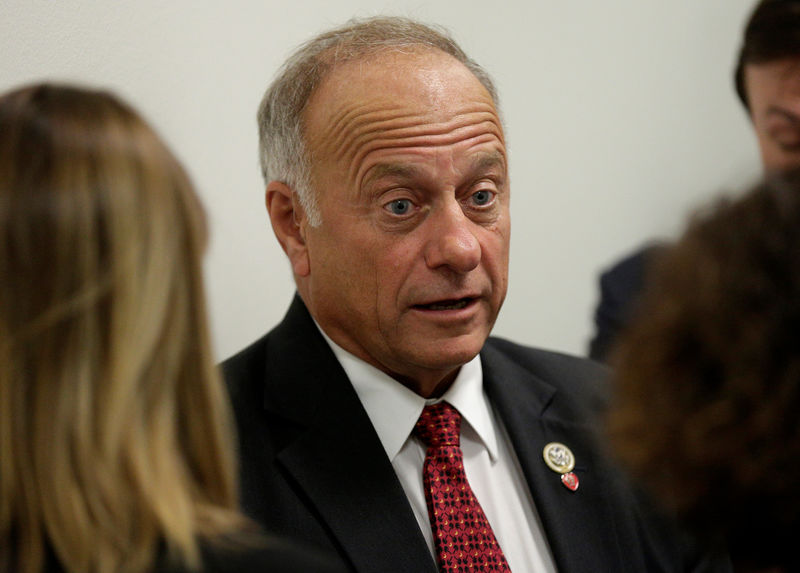By Richard Cowan
WASHINGTON (Reuters) - President Donald Trump’s call to the U.S. Congress to pass protections for some undocumented immigrants is stirring interest among his fellow Republicans in Congress, despite the party's longstanding divisions over immigration that were on display on Wednesday.
Trump, who fashioned his 2016 presidential campaign around a pledge to clamp down on illegal immigration, has now turned the political landscape on its head.
On Tuesday, he angered business groups and Democrats with his announcement that he was terminating former President Barack Obama's executive order protecting from deportation nearly 800,000 immigrants, known as Dreamers, who were illegally brought to the United States as children.
But he also urged legislative efforts to permanently protect those youth, despite long-held opposition from some of the most conservative members of the Republican Party who comprise his base of supporters.
Democrats have long been united around major elements of a comprehensive immigration bill, while Republicans have been divided over whether to embrace anything beyond narrow tweaks of current law.
"My challenge to the president," said Republican Senator Lindsey Graham, is to help Congress get legislation passed within Trump's six-month deadline. "Work the phones, try to find a consensus."
Republican lawmakers on Wednesday touted a slew of competing ideas on immigration that could lure votes from many pockets of the party but might doom any bill by alienating Democrats or conservative Republicans.
One of Trump's most vocal supporters in Congress, Republican Representative Chris Collins, wasted no time in introducing legislation on Tuesday to protect Dreamers.
In an interview on Wednesday he went further, calling for comprehensive moves to put the 11 million undocumented people living in the United States on a pathway to citizenship if they qualify.
"Our dairy farmers need it, our crop farmers, the hoteliers, the restaurateurs, the families need it, the kids need it," Collins said of firms that employ foreign workers and the millions of undocumented.
CAN CONSENSUS BE BUILT?
Representative Pete Sessions, a senior Republican who chairs the powerful House Rules Committee, said he favors allowing undocumented immigrants to apply for a "guest worker" program.
But he said he would not support legislation that ultimately grants them citizenship - a major stumbling block for immigration advocacy groups, Democrats and some Republicans.
Attorney General Jeff Sessions also said Republicans are not fully on board yet with effort. Upon leaving a closed-door meeting of House Republicans, he was asked whether immigration legislation might emerge in early 2018. "I think that there's no decision. We listened carefully," he said.
Indeed, conservative Republican Representative Mike Burgess quipped, "We've got other things that are probably more pressing" than addressing the Dreamers now.
The immigration issue has vexed Congress for years, raising doubts about whether Trump and a Republican Congress could build a consensus around legislation.
"It may be difficult for Republicans to address the DACA (Obama's executive order) issue within the six-month time frame, because that's exactly when many of them are entering primary season, where candidates could outflank them on the right calling them weak on immigration," said Ron Bonjean, a political strategist who previously worked for House and Senate Republican leaders.
Meanwhile, Senator Tom Cotton wants to reduce the number of legal immigrants allowed into the United States, a move that Democratic Senator Dick Durbin called "problematic," especially amid some Republican opposition.
In the meantime, lawmakers are expected to fine-tune proposals to help farmers get easier access to temporary foreign workers, just as others work to help their home-state high-tech industries get more visas for skilled immigrants. More border security steps are likely too, although there is only weak support for Trump's southwestern border wall.
Those measures could help House Speaker Paul Ryan and Senate Majority Leader Mitch McConnell patch together the votes that would be needed - if they are so inclined.

If the effort sputters, as it has so many times in the past, Republican Representative Mike Coffman has a Plan B at the ready: a three-year pause in deporting qualified Dreamers to give Congress yet more time to come up with a permanent fix.